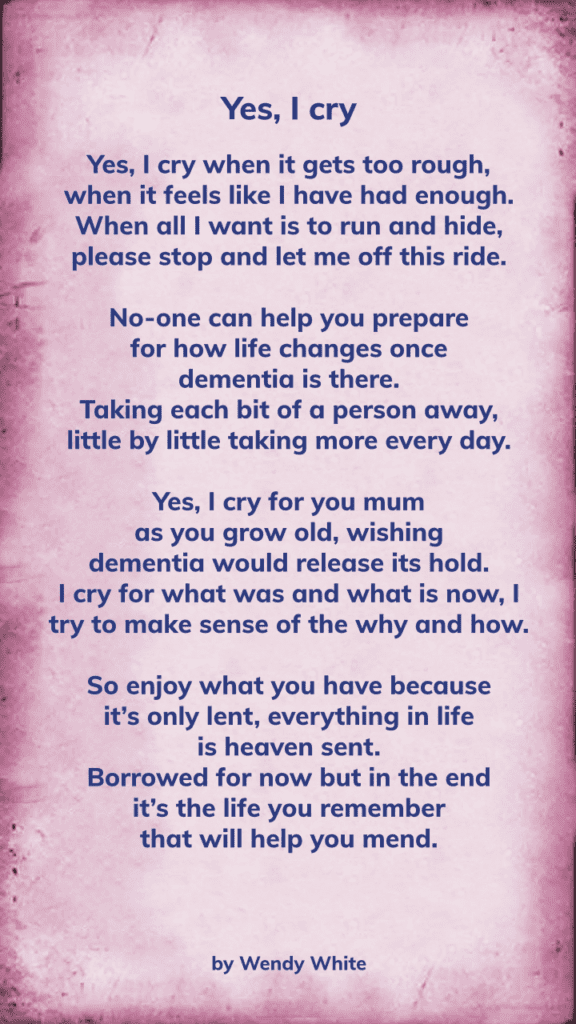Sad My Mom Won't Meet My Kids: Understanding Dementia And Its Impact On Families
Living with dementia is one of the most challenging experiences a family can face. When a loved one is diagnosed with dementia, it can bring a wave of emotions, including sadness, fear, and uncertainty. For many, the reality that their parent may never meet their grandchildren is heartbreaking and deeply personal. In this article, we delve into the emotional and practical aspects of dementia, exploring how families can navigate this difficult journey.
Dementia is not just a medical condition; it's a life-changing diagnosis that affects everyone in the family. Understanding the nuances of dementia and its progression can help families prepare for the road ahead. This article will provide insights into the disease, its impact on relationships, and strategies to cope with the emotional challenges that arise.
By focusing on the keyword "sad my mom won't meet my kids dementia," we aim to address the unique challenges faced by families dealing with this situation. This guide will help you understand the disease, its progression, and how to support your loved ones during this difficult time.
Read also:Parotta And Chicken Curry A Mouthwatering Delight Thats Worth Every Bite
Table of Contents
- Understanding Dementia
- Types of Dementia
- Emotional Impact on Families
- Progression of Dementia
- Coping Strategies for Families
- Support Systems and Resources
- Biography of a Caregiver
- Family Dynamics and Dementia
- Long-Term Care Options
- Conclusion and Next Steps
Understanding Dementia
Dementia is a broad term used to describe a decline in cognitive function that affects daily life. It is not a specific disease but a syndrome associated with various conditions, such as Alzheimer's disease, vascular dementia, and Lewy body dementia. The symptoms of dementia vary depending on the type and stage of the condition.
For families, understanding dementia is crucial in providing the best care and support for their loved ones. Recognizing the early signs and seeking medical advice can help manage the progression of the disease.
Key Symptoms of Dementia
- Memory loss
- Difficulty with communication
- Problems with focus and attention
- Changes in mood and behavior
Types of Dementia
There are several types of dementia, each with its own characteristics and causes. Understanding the differences can help families tailor their approach to caregiving.
Alzheimer's Disease
Alzheimer's disease is the most common form of dementia, accounting for 60-80% of cases. It is characterized by the accumulation of amyloid plaques and tau tangles in the brain, leading to progressive memory loss and cognitive decline.
Vascular Dementia
Vascular dementia is caused by reduced blood flow to the brain, often due to stroke or other cardiovascular issues. Symptoms may include difficulty with problem-solving, slowed thinking, and memory problems.
Emotional Impact on Families
The emotional toll of dementia can be overwhelming for families. The realization that a parent may never meet their grandchildren due to dementia can evoke feelings of sadness, anger, and helplessness. It is important for family members to acknowledge these emotions and seek support when needed.
Read also:Mica D Barber Shop The Ultimate Destination For Stylish Haircuts
Studies show that families who receive emotional support and counseling are better equipped to handle the challenges of caregiving. Building a strong support network can make a significant difference in managing the emotional impact of dementia.
Progression of Dementia
Dementia progresses through several stages, each with its own set of challenges. Understanding the progression can help families prepare for what lies ahead and make informed decisions about care.
Early Stage
In the early stages of dementia, individuals may experience mild memory loss and difficulty with complex tasks. At this stage, it is crucial to establish routines and provide support to maintain independence.
Middle Stage
The middle stage is often the longest and most challenging. Memory loss becomes more pronounced, and individuals may require assistance with daily activities. Family members should focus on creating a safe and supportive environment during this phase.
Late Stage
In the late stage, individuals with dementia may lose the ability to communicate and perform basic tasks. Caregivers must prioritize comfort and quality of life during this stage.
Coping Strategies for Families
Coping with dementia requires a combination of emotional resilience and practical strategies. Here are some tips for families navigating this journey:
- Stay informed about the disease and its progression
- Establish routines and create a supportive environment
- Seek emotional support from friends, family, or professional counselors
- Take breaks and practice self-care to avoid burnout
Support Systems and Resources
Accessing support systems and resources can significantly improve the quality of life for both individuals with dementia and their families. Organizations such as the Alzheimer's Association and local support groups offer valuable information and assistance.
Additionally, technology has made it easier for families to connect with caregivers and access educational resources. Apps and online platforms can help track symptoms, manage medications, and provide emotional support.
Biography of a Caregiver
Meet Sarah Thompson, a dedicated caregiver who has spent the past decade supporting her mother with dementia. Below is a brief biography of her journey:
| Name | Age | Role |
|---|---|---|
| Sarah Thompson | 45 | Primary Caregiver |
Sarah's experience highlights the challenges and rewards of caregiving. Her dedication to her mother has inspired others to seek support and build stronger family connections.
Family Dynamics and Dementia
Dementia can strain family dynamics, especially when decisions about care and finances need to be made. Open communication and collaboration are essential in maintaining harmony within the family.
Family meetings can help address concerns and allocate responsibilities fairly. It is also important to involve all family members in decision-making processes to ensure everyone's voice is heard.
Long-Term Care Options
As dementia progresses, families may need to consider long-term care options. These can include in-home care, assisted living facilities, or memory care units. Each option has its own advantages and disadvantages, and families should carefully evaluate their choices based on individual needs and preferences.
Memory Care Units
Memory care units are specialized facilities designed to meet the unique needs of individuals with dementia. They offer 24-hour supervision, structured activities, and a secure environment to ensure safety and well-being.
Conclusion and Next Steps
Living with dementia is a challenging journey, but with the right support and resources, families can navigate this path with grace and resilience. Understanding the emotional and practical aspects of dementia is key to providing the best care for loved ones.
We encourage readers to share their experiences and seek support from others who understand the challenges of caregiving. By working together, we can create a stronger, more compassionate community for those affected by dementia.
Take action today by exploring the resources mentioned in this article and connecting with support groups in your area. Remember, you are not alone in this journey. Together, we can make a difference.



